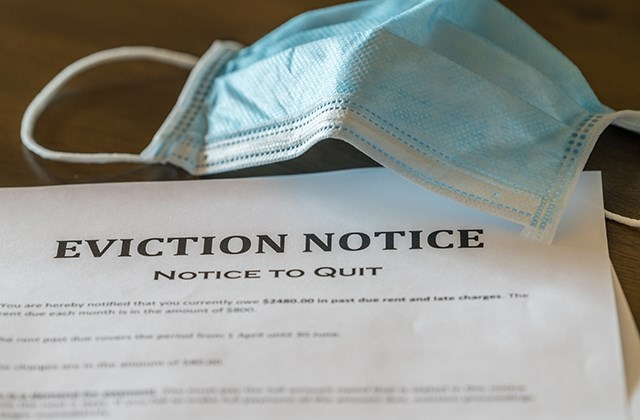Adriana Escorza this summer was working her first job out of high school, proud she was on her own and paying her own bills.
Then COVID-19 struck the 19-year-old in September and her newfound independence vanished. She left her job at a car dealership after being infected with the virus and found herself short on money to buy food and pay rent.
“I hadn’t worked there that long to build up my savings, so I couldn’t afford food and rent. I just never thought I’d be in this situation,” Escorza said. “I never thought I’d get COVID. I never thought I’d be in trouble for rent. This just struck me out of nowhere.”
While recovering from COVID, Escorza got a new job and short-term financial help from the OUR Center. Escorza is still worried she might be evicted from her apartment if she can’t produce a rent payment next month.
“Right now, I’m just trying to figure it all out,” she said. “It’s month to month for me.”
Longmont officials say they are trying to keep tenants like Escorza in their apartments and homes by joining the Boulder County Consortium of Cities in urging Gov. Jared Polis to extend and expand existing and expired executive orders that created statewide protections for renters and landlords adversely hit by COVID-19.
- The consortium is asking for the following protections:Extend or make permanent executive orders requiring landlords to give tenants a 30-day Demand for Compliance notice, rather than the current statutory 10-day period, before filing evictions case in court for non-payment of rent. The group also asks the compliance information be provided in English, Spanish, or the first language of the renter. It also wants notices to tenants to include information about financial assistance, community mediation, legal representation or other resources.
- Extend the state moratorium on fees or penalties for late rent payments for COVID-19 impacted tenants or cap late fees to a reasonable percentage of no more than 5% of monthly rents.
- Reinstate the eviction moratorium in Colorado to complement and support the national moratorium imposed by the Centers for Disease Control and Prevention.
The Consortium, in its letter, told Polis his previous executive order protecting tenants proved to be a lifeline to Coloradans at risk of losing their housing due to the economic impacts of COVID.
“These protections allowed many residents to successfully maintain their housing in the face of the economic impacts of the pandemic, especially by pairing the moratorium with rental assistance, community mediation and legal services, thus giving the support necessary to both allow residents to remain housed and to allow landlords to stay afloat,” the letter states.
OUR Center Executive Director Marc Cowell in an email said many of the households served by the nonprofit include someone who has lost their job and has not been able to get new work. “The job market has not bounced back and there is an incredible amount of competition for the jobs that are out there,” Cowell said. “Meanwhile, the bills, including rent, continue to pile up for these households.”
Many of those households would have been evicted if not for the moratorium, he said.
“...Our goal is to do the best we can to assist these households so they do not fall too far behind during this difficult time,” Cowell said.
Polis in January signed an executive order to extend Colorado’s moratorium on evictions until Jan. 31. The federal moratorium also bans landlords from removing tenants in many cases.
Polis’ office said in January that more housing aid and other relief money may be enough to reduce the need for extra protections for tenants.



